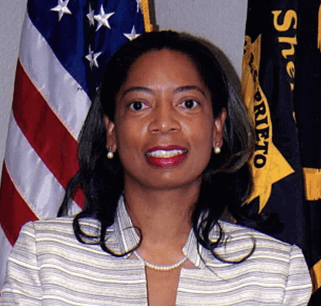Master Class: AI for Faculty - A 3-Part Professional Development Series
A 3-Part Professional Development Series focused on AI for Faculty
Event Details
This 3-Part Professional Development Series meets July 10th, July 24th, and August 7th from 12PM-1PM. Upon registration, you will receive a Zoom link.
Overview:
Part 1
- Topic: Hacking Entrepreneurial Education with Design Thinking
- Description:
Join us for an engaging panel session: "Hacking Entrepreneurial Education with Design Thinking."
In this dynamic panel session, leading educators will unpack proven strategies to foster creativity, resilience, and real-world problem-solving in the classroom. Discover how innovative, student-centered approaches can drive measurable improvements in learning outcomes and student confidence. This session offers practical insights and research-informed methods to help you unlock your students’ full entrepreneurial potential.
Join NACCE for a dynamic panel discussion featuring the latest findings from the #1 Public University for Entrepreneurship— the University of California, Berkeley — to reimagine entrepreneurship education for the next generation. Learn how institutions can design entrepreneurial instruction to inspire risk-taking, nurture ethical leadership, and create more inclusive learning environments.
Part 2
- Topic: AI in the Classroom: A deeper look at what enhances student learning
- Description:
Join leading voices in higher education for a thought-provoking panel on the evolving role of AI in the classroom. As generative AI disrupts traditional assessment and raises urgent questions about academic integrity, educators are rethinking how to design authentic learning experiences that foster creativity, critical thinking, and real-world problem-solving. Discover how some higher education instructors are transforming their classrooms using AI-enhanced mentorship, powered by personalized learning and real-time feedback. This approach expands students’ access to guidance and support, scales the benefits of high-quality mentorship, and helps students build essential social capital. Drawing on insights from Julia Freeland Fisher’s research, we’ll explore why “who you know” is as vital as “what you know,” and how technology can—and should—be leveraged to connect students with mentors and peers who inspire and empower them.
We’ll also examine ambiguous AI interventions, such as chatbots that blur the line between human connection and automated support, and discuss how to balance the promise of technology with the enduring value of authentic relationships in education. Don’t miss this opportunity to gain actionable strategies for integrating AI in ways that truly enhance student learning, while safeguarding the human connections that are at the heart of meaningful instruction.
Part 3
- Topic: Will AI foster or replace a sense of belonging in higher education?
- Description:
Join leading educators for a compelling panel that tackles one of today’s most pressing questions: as AI reshapes the classroom, will it help students feel more connected, or will it risk replacing the human relationships at the heart of belonging?
Explore the dual promise of AI: its power to personalize support, connect students with peers and mentors, and provide just-in-time interventions that foster inclusivity and engagement, especially for those at risk of disconnection. Discover real-world examples where AI is used to enhance mentorship, scaling the benefits of high-quality guidance and helping students build the social capital that Julia Freeland Fisher identifies as essential for success.
But AI’s impact is not always clear-cut. Hear how some AI-driven tools, while efficient, may inadvertently reduce face-to-face interactions and lead to feelings of loneliness, raising essential questions about the trade-offs between automation and authentic connection.
This panel will offer practical insights and evidence-based strategies to help educators thoughtfully integrate AI, ensuring technology amplifies—not replaces—the sense of belonging that is so vital to student achievement and well-being. Don’t miss this timely conversation about the future of connection in higher education.
For More Information:
About the Facilitators:
Part 1:
Moderator: Jill Finlayson
Panelist 1: Anita Balaraman
Panelist 2: Dr. Slaton
Part 2:
Moderator: Anula Narasimhan
Panelist 1: Anita Balaraman
Panelist 2: Dr. Shane Snipes
Panelist 3: Dr. Melissa Brooks
Panelist 4: Ed Bass
Part 3:
Moderator: Elizabeth Anderson
Panelist 1: Anita Balaraman
Panelist 2: Ed Bass
Panelist 3: Dr. Melissa Brooks
Panelist 4: Dr. Shane Snipes
Speaker Bios:

Anita Balaraman
Founder and CEO of Epixego, Adjunct Professor at UC Berkeley
Anita is a technology product leader with more than 10 years of experience in building technology products that delight the customer both in the B2B and B2C domain. She is also an adjunct faculty at UC Berkeley, teaching and coaching hi-tech product management. She is currently the founder of an early stage ed-tech startup. Most recently she led the digital customer experience practice at Cisco Systems, designing and launching enterprise solutions for customer experience. Prior to that, she led the product team at WalmartLabs launching products that combine machine learning, predictive analytics and personalization. She consults independently and on the board of technology startups in the advertising, ecommerce, and ed-tech space. Anita received her MS in toxicology and applied statistics, and an MBA, both from the University of California, Berkeley.

Jill Finlayson
Managing Director, CITRIS Innovation Hub
University of California at Berkeley

Dr. LaVonne Slaton
Professor of Business, Management, and Marketing
Solano Community College
Dr. LaVonne Slaton is an experienced educator, practitioner, and scholar who serves as Professor of Business, Management, and Marketing at Solano Community College. She also advises the SCC Entrepreneur and Rotaract Clubs, encouraging students to “Think Like an Entrepreneur.” With over 30 years of experience across education, government, finance, and business, she connects academic insight with practical application to support student success.
She holds a Ph.D. in Management of Sustainable Systems, an MBA, and a B.S. in Business Administration with a concentration in Accountancy. Her research focuses on STEM entrepreneurship, equitable education, and career success for underrepresented minorities. Her published works include STEM Entrepreneurs: Educating for Job Satisfaction and Career Success and STEM Education Is Not a Silver Bullet for Everyone. Her conference presentation topics include The Truth About STEM Education and the Power of STEM Entrepreneurship and Designing Mentoring for Equitable Access to Social Capital.
As a champion for mentorship, entrepreneurship, and technology, Dr. Slaton has collaborated with organizations like the Project Management Institute and Aon Apprenticeship Program to build innovative, experiential learning opportunities and mentorship programs. She coordinates entrepreneurship boot camps, project-based business courses, and student-led competitions that blend business theory with hands-on practice. Dr. Slaton has developed an Artificial Intelligence for Business course to help students apply AI to real-world business problems in areas such as marketing, operations, finance, and wellness to help students use AI to build a competitive advantage.
Dr. Slaton is originally from Merced, in California’s Central Valley and home to U.C. Merced. She comes from a long line of entrepreneurs and a background rooted in the agriculture industry. Her father, a diesel mechanic and owner of Jack Slaton Trucking, and her mother, a nurse and real estate developer, modeled innovation, resilience, and service. Her work is dedicated to her STEM-entrepreneurial parents and grandparents, who instilled in her a passion for education, purpose, and possibility. She lives by the words of Dr. Martin Luther King Jr.: “The great challenge is to prepare ourselves to enter doors of opportunity.

Dr. Shane Snipes is Deputy Chair of Business Management Department and Coordinator of the entrepreneurship degree at CUNY’s Borough of Manhattan Community College, where he created and leads AI-enhanced curricula and founded the Citizen Entrepreneur Explorers Program (CEEP). With extensive experience facilitating workshops on AI literacy, curriculum design, and experiential activities, Dr. Snipes specializes in empowering faculty to navigate generative AI ethically and effectively. His research agenda focuses on integrating generative AI into education to enhance critical thinking, collaboration, empathy, and entrepreneurial self-efficacy among students. His work also investigates experiential learning frameworks that foster problem-solving through community-engaged programs.

Dr. Melissa Brooks, Business Instructor, Hillsborough College
Dr. Brooks is an Active-Duty Navy Military Spouse who has had the opportunity to live and travel the world. She has a diverse background in education, healthcare, construction, and retail industries, having worked in various roles such as human resources, recruitment, administration, marketing, sales, advising, and professor. She has a passion for learning, conducting research, and mentoring. Dr. Brooks earned her Doctor of Business Administration with a concentration in Human Resources from National University, a Master’s in Public Administration in Non-Profit Management and a Master in Science in Human Resource Management from DeVry University, and a Bachelor’s of Science in Social Work and Sociology with a minor in Politics, Economy, and Society from St. Cloud State University. She is pursuing a Graduate Certificate in Homeland Security and Emergency Management from the University of Central Florida. She has taken courses in Teaching with AI online and has taught courses on how to use AI in the Classroom. Most recently, she has presented a poster at the Teaching with AI conference in 2025 and is currently working on several research papers about AI in Higher Education and the Workforce.

